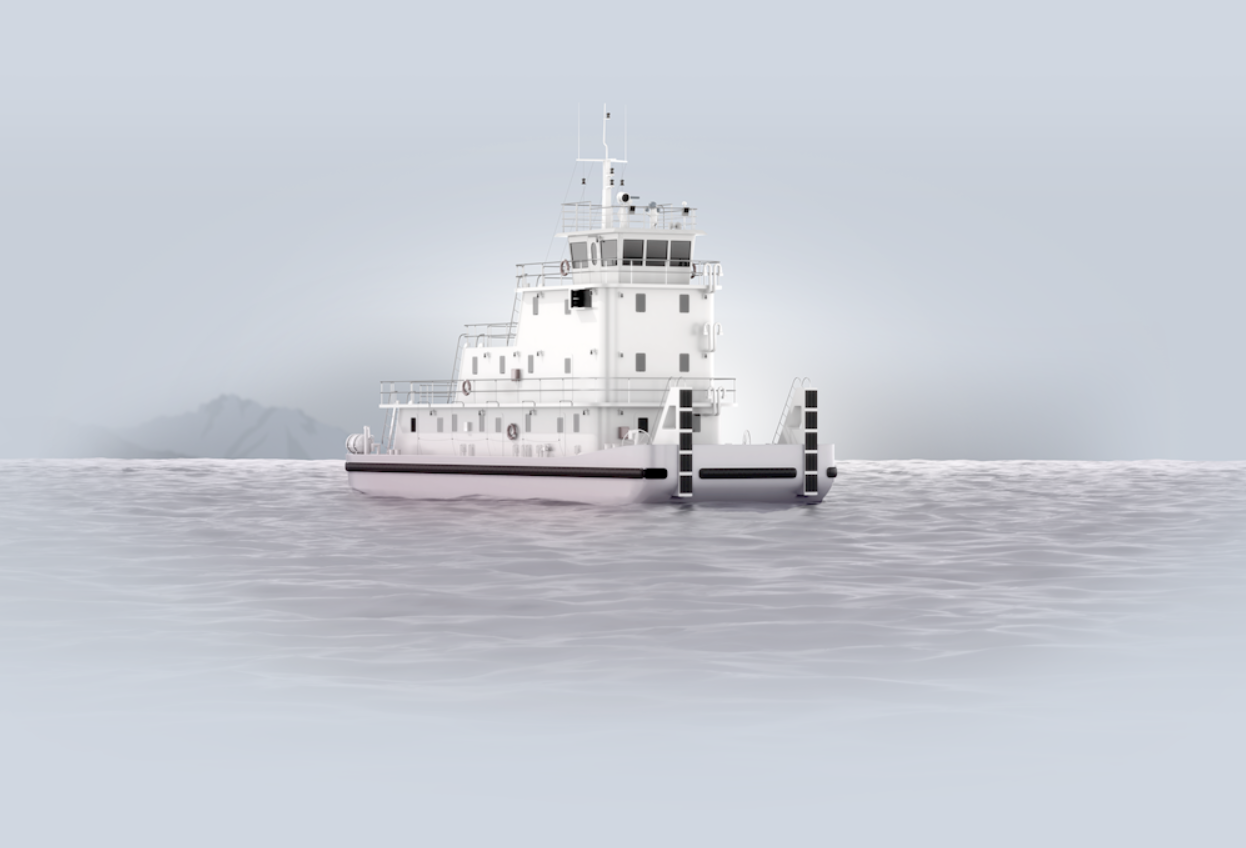It was announced earlier this month that ABB would be supplying the systems that will power the first U.S.-built, all electric and zero emission passenger vessel for Maid of the Mist Corp., operators of Niagara Falls tour boats. ABB will supply the boat with an integrated power and propulsion package including lithium ion battery packs and an onshore charging system, enabling sustainable operation with maximum reliability.
Now ABB is putting similar technology into a river towboat. The company announced today at the Inland Marine Expo in St. Louis that it will provide a fuel cell-based power and propulsion solution for a pushboat owned by the France-based Sogestran Group subsidiary Compagnie Fluviale de Transport (CFT), due for delivery in 2021. With hydrogen for the fuel cells sourced from shore-based renewable energy, the complete vessel energy chain will be emission-free.
The project objective is to demonstrate that fuel cells are a practical and deliverable propulsion solution for owners and builders of mid-sized vessels carrying more than 100 passengers or the equivalent freight volumes on inland and coastal waterways.
Fuel cell technology is widely considered as one of the most promising sustainable energy solutions for reducing marine emissions worldwide. Fuel cells turn the chemical energy from hydrogen into electricity through an electrochemical reaction. They convert fuel directly to electricity, heat and clean water.
“All you get out of a hydrogen fuel cell is water and a little heat, nothing else,” said ABB’s senior account manager David Lee. The arrangement will give the pushboat about 800-hp.
Once the fuel cell power plant has been fitted, the plan is to run the vessel daily, with special attention being paid to the refueling procedures needed to meet the operating schedule. Trials will therefore also provide insights into developing and optimizing the refueling infrastructure needed for hydrogen fuel cells in marine operations. “The river industry is usually the last to adopt new technology,” said Lee,” which makes this project even more exciting. This is only the start. It will be slow, but it’s going to happen.”
With maritime transport estimated to emit around 940 million tons of CO2 annually, there is an increased pressure for the shipping industry to deploy a means of reducing harmful pollutants. The International Maritime Organization adopted a strategy on reduction of greenhouse gas emissions from ships by at least 50% by 2050 compared to 2008, with the aim of phasing out the gases entirely.





